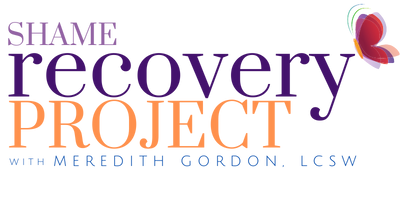Since co-authoring All the Love: Healing Your Heart and Finding Meaning After Pregnancy Loss, I’ve had the pleasure of meeting other authors who have served, in a clinical nature, hundreds if not thousands of individuals who have suffering such devastating loss.
Once such person is Joey Miller, author of REBIRTH – The Journey of Pregnancy After a Loss. Joey is a licensed clinical social worker with twenty years’ experience in reproductive psychology, loss and trauma, and women’s mental health. Joey began her career working in the areas of adult trauma and emergency medicine before gaining unparalleled experience in the areas of pregnancy and infant loss while serving as the perinatal loss program coordinator at Northwestern Memorial Hospital in Chicago. Her work in this area is now a primary focus of her clinical practice at Wellsprings Health Associates. She has also served as a faculty member at Northwestern Feinberg School of Medicine.
She joins us here to tackle the suffering of shame after pregnancy loss, and offers ways to view this difficult emotion.
***
by Joey Miller, MSW, LCSW
Pregnancy is supposed to be a happy, exciting, and joyful experience. Even the actual words used to express the news— “I’m expecting” —denote that a healthy, full-term delivery is anticipated. Unfortunately, even if a woman is able to conceive spontaneously and straightforwardly, the happily-ever-after can be abruptly and dramatically interrupted when the miracle of pregnancy is transformed into the nightmare of loss.
The hard truth is that babies can and sometimes do die during all three trimesters of pregnancy, during labor and delivery, the postpartum period, and early infancy.
For reference, the World Health Organization (WHO) reports there are over 6.3 million perinatal deaths a year worldwide. Of these, 2.64 million are stillbirths, and 3.0 million are early neonatal deaths (loss occurring within the first month of life).1
In some cultures, women define themselves by the ability to create life and become a parent, a mother. The less-than-straightforward path toward this end, and for many the great struggle, can create feelings of inadequacy, failure, and a corresponding (and profoundly negative) impact on a woman’s sense of identity. She may believe the medical system failed. Her physician failed. Her body failed. She may even send herself the message that she herself failed.
If you’ve experienced pregnancy or infant loss, you’re all too aware you were left facing not only the physical loss of your baby, but also the loss of the expected future, as well as loss of control, loss of time, loss of clarity, loss of confidence, and loss of identity. You were expecting to be a mother.
Then, there’s more. As a bereaved woman, you’re forced to navigate these challenges (and the consideration of a subsequent pregnancy) all while simultaneously existing within a very fertile world.
It can seem as if pregnant women and babies exist everywhere—and serve to highlight your own perceived shortcomings and failures. Although you may be hesitant and too embarrassed to admit it, you may even feel in active competition with others, always acutely aware of your position (and theirs) in the race to create, and then complete, your family.
It is not uncommon to feel strong stabs of jealousy, anger, and resentment toward other women/couples who are currently pregnant or newly delivered, particularly if it is someone close to you. This experience can actually intensify your grief, making it feel further unfair and alienating. It can deepen the sense of injustice in your world, disrupt your sense of the right order of things, and compound your frustrations, especially if another’s pregnancy was not as difficult as your own and didn’t involve loss.
Please know it is normal and natural for you to feel extreme hypersensitivity and hyperawareness of everyone else’s family planning efforts. While on some level, your grief and trauma dramatically and instantly matured you beyond your years, you are still human and will continue to experience the full range of human emotion, including deep feelings of jealousy and even resentment towards others who have what you had and continue to want desperately. Most women are disappointed in themselves for making such unfair and unhelpful comparisons, but find it difficult to turn off that ongoing narrative. Further, many feel ashamed and even disgusted by themselves when their inner voices may condemn those who did not suffer though such a painful loss, and may even harbor dark thoughts about others, wishing their paths were somehow harder.
What you need to realize is that these thoughts are not intentionally malicious, but instead, signs of the deep desperation of pain and loss, and not wanting to feel so alone, lost, and left behind.
As I always counsel my patients, the weight of grief is enough to bear. Adding the self-imposed weights of shame (in context of your own identity and with regard to thoughts towards others) only compounds the pressure. I continuously tell my patients, “You are not wrong. Rather, something very wrong happened to you.”
1 Reproductive Health: https://ncbi.nlm.nih.gov/pmc/articles/PMC3909453/.
Photo by Brandi Ibrao on Unsplash.
